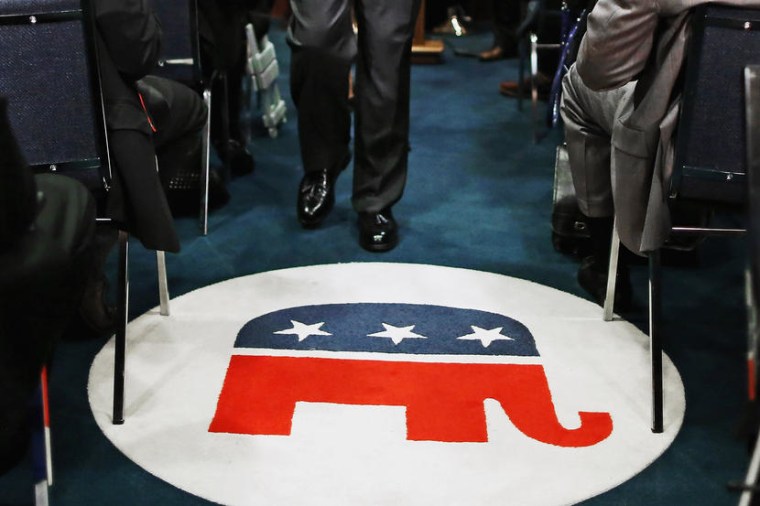The group never had the power or influence of its conservative counterparts, but the Main Street Caucus at least used to exist. The congressional caucus included a few dozen House Republicans who wanted to be seen as relative moderates, and members who were ready to work constructively on bipartisan compromises.
If the contingent's name doesn't sound immediately familiar, it's because it disappeared a few years ago: In the wake of the 2018 midterm election, members of the Main Street Caucus questioned why more than $700,000 of the group's campaign funds went unspent. Questions were raised, audits were proposed, and eventually, the faction dissolved in the face of internal disputes.
Politico reported this week, however, that it's making a comeback.
More than 60 GOP lawmakers are set to be part of it. Reps. Don Bacon (Neb.), Pete Stauber (Minn.) and Mike Bost (Ill.), who head up the new Main Street Caucus, hope to be a centrist counterweight to the far-right flank of the House GOP. Nick Raineri — who previously headed up member services for Rep. Jim Banks (R-Ind.), the chair of the Republican Study Committee — will be Main Street's executive director.
"Ultimately, this caucus will be a home for pragmatic conservative members who want to deliver real results to their districts," Raineri said in a statement.
At first blush, the report should be a source of optimism. As much of the Republican Party, especially in Congress, moves further and further to the right, the idea of a "centrist counterweight," welcoming "pragmatic" GOP lawmakers, sounds encouraging. The fact that the contingent will reportedly have 60 members — representing more than a fourth of the party's overall House conference — seems like an important step in the right direction.
But — and you had to know a "but" was coming — the concern can be reduced to a single question: In 2021, how do Republicans define words like "centrist" and "pragmatic"?
Zero House Republicans voted for the American Rescue Plan that provided Covid relief funds. Zero House Republicans voted for the John Lewis Voting Rights Advancement act. Zero House Republicans voted last night for a stopgap measure to prevent a government shutdown and a debt-ceiling crisis.
There weren't 60 GOP votes for a non-partisan commission to investigate the Jan. 6 attack. There weren't 60 GOP votes to hold Donald Trump accountable for his role in instigating an insurrectionist riot. There weren't 60 GOP votes for the Equality Act; there were three. There weren't 60 GOP votes for the Paycheck Fairness Act; there was one. There weren't 60 GOP votes for the George Floyd Justice in Policing Act; there was one.
The idea of a Main Street Caucus made up of pragmatic House Republicans certainly sounds great. But given what we've seen from the actual House GOP Conference, I'd recommend some skepticism about the group's capacity to serve as a "centrist counterweight."

